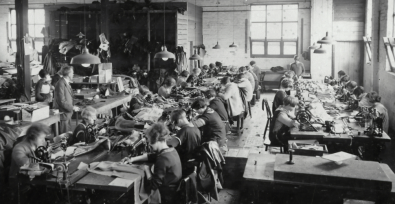Major fashion brands, including Barbour and PVH (owner of Calvin Klein and Tommy Hilfiger), are set to pay over £400,000 in compensation to migrant workers in Mauritius, following an investigation into the garment industry by Transparentem. The findings reveal a distressing pattern of illegal recruitment fees, deception, and intimidation faced by workers from many regions.
Not a new phenomenon
The exploitation of garment workers is not a new phenomenon. According to Alessandra Mezzadri, writing for The Conversation, historical and modern-day occurrences of indentured labor systems mirror each other with the legacies of labor contracting and debt bondage continuing in the industry to this day.
“Many forced labor practices have a long history, dating back to colonial relations. Both labor contracting and indebtedness characterized the indentured labor system that dominated the production of textiles for centuries. In 19th-century India, for example, indentured workers were managed by labor contractors who paid them advances.
Under this point of view, the contemporary garment supply chain is a modern avatar of the colonial labor plantation.” −Donnezan.
In a report for the International Labor Organization (ILO), Donnezan and colleagues discovered a trend of widespread use of illegal terminations by employers, either through factory closures or relocation across many regions. They also found evidence of wage theft, where employers do not pay workers their final wages. Most disturbingly, the investigation uncovered the use of gender-related abuses, including sexual harassment, as a tool to discipline women working on the assembly line.
“Cases like the labor abuse in Mauritius are conspicuous and show new connections between modern slavery and migration. But these cases are enabled by centuries of colonial and neo-colonial organization of production that has involved unacceptable forms of worker exploitation.”
Collective action to address systemic labor abuses
The findings of the ILO report emphasize the need for collective action to address systemic labor abuses. Donnezan demonstrates in his reporting of exploitative practices in Mauritian factories and linking them to abuses in a myriad of other regions, that exploitative practices are deeply ingrained in garment industry supply chains.
Help instill systemic change and social justice for garment workers by taking the Freedom United fashion pledge. Be part of the solution!







Freedom United is interested in hearing from our community and welcomes relevant, informed comments, advice, and insights that advance the conversation around our campaigns and advocacy. We value inclusivity and respect within our community. To be approved, your comments should be civil.
This is disgusting & until this country & other places throughout the world make those in positions of power be held responsible for their disgusting practices it will continue to thrive.